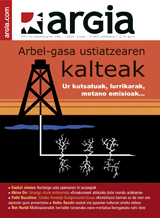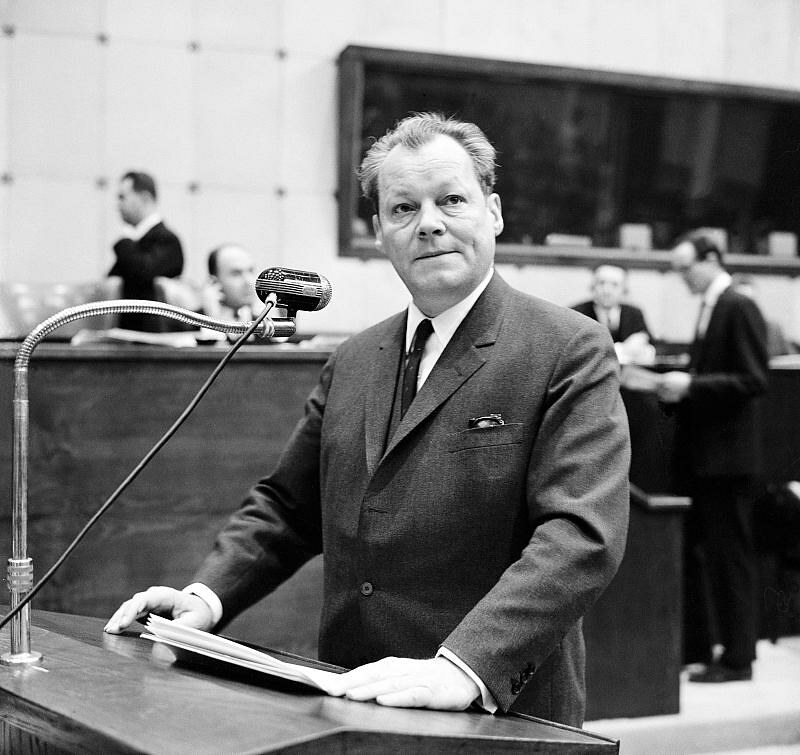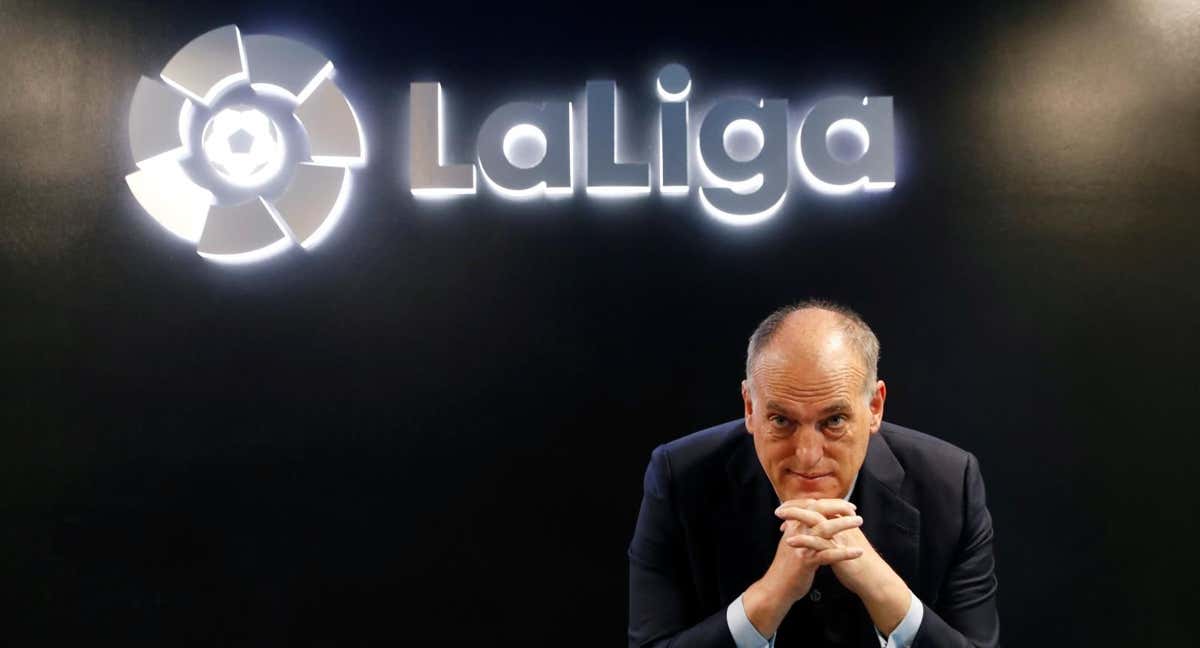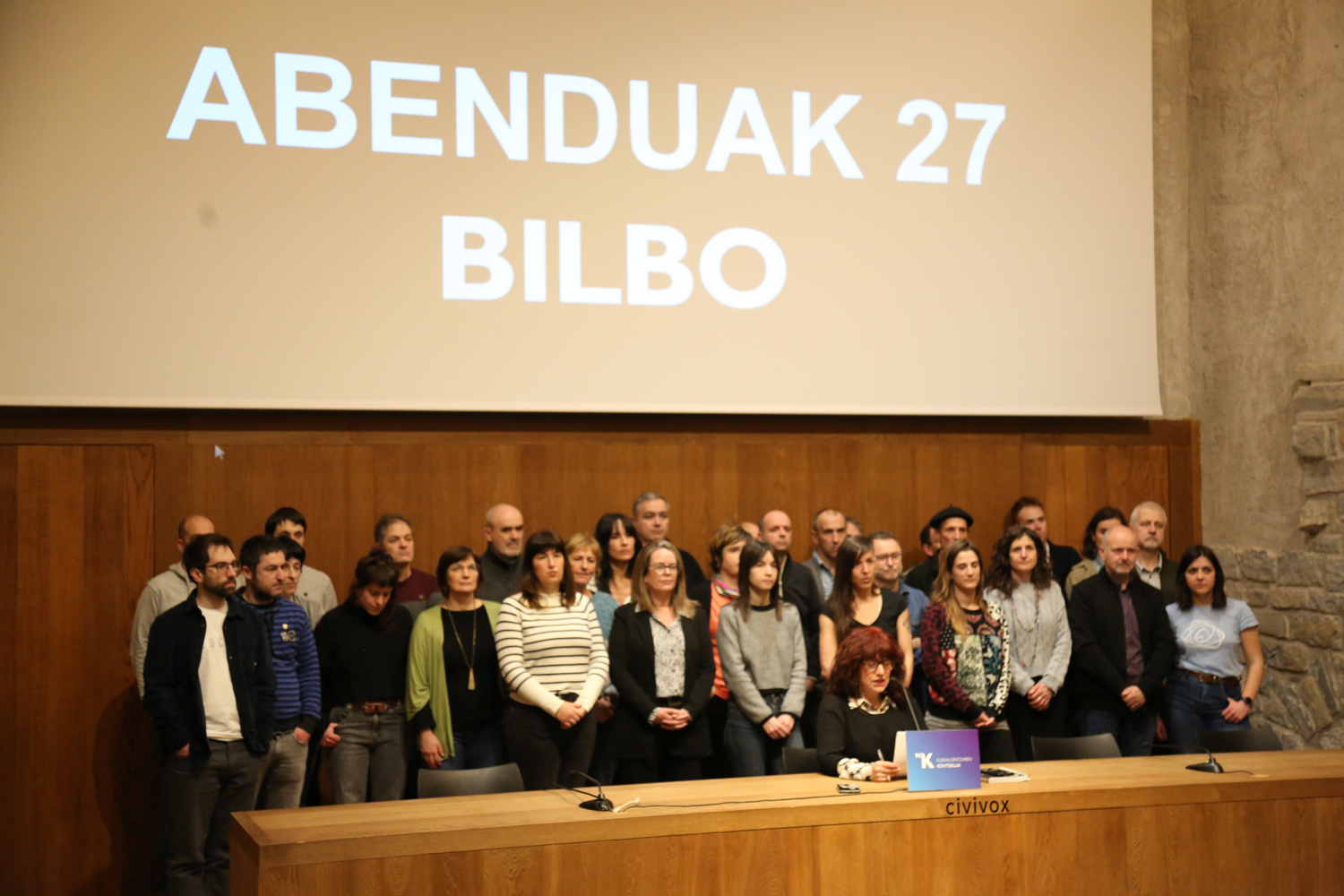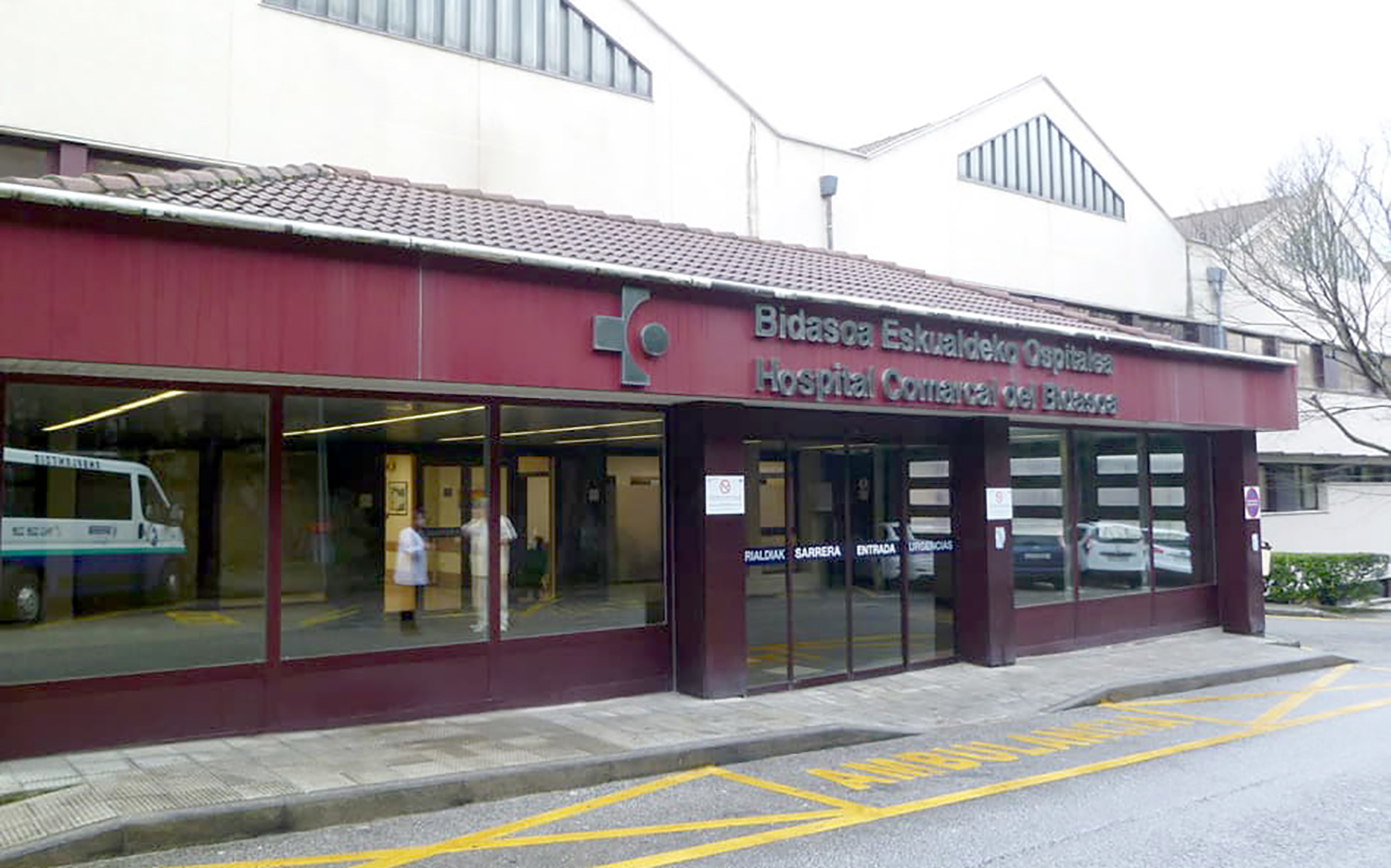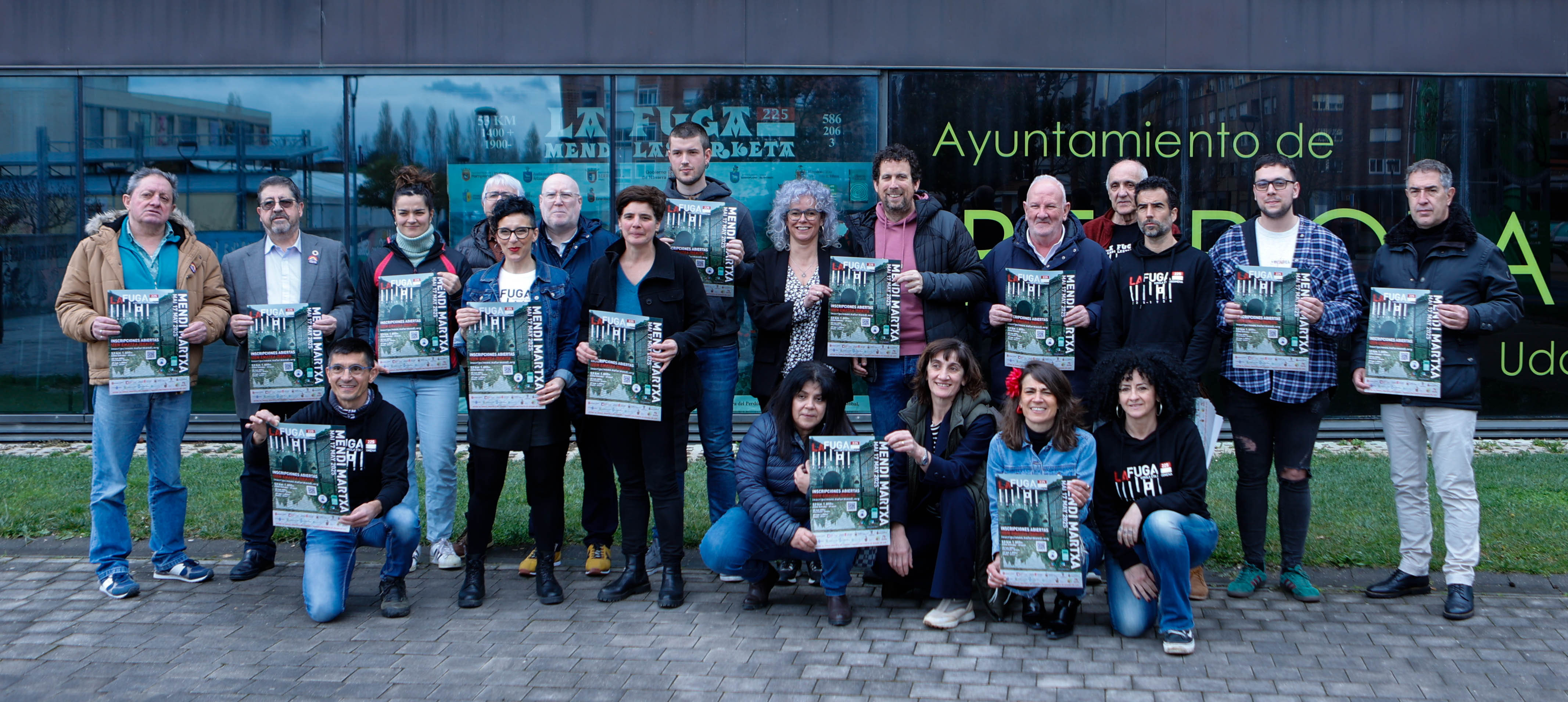The milk of small farmers is bad for multinationals.
- The rich North of the world produces 362 million tons of milk per year and the poor South 337. Having managed to control almost all the milk from the north, the large multinationals now want to take over the milk from the south. To do this all the tactics are allowed: buy small dairy companies, sink prices, manipulate health standards...
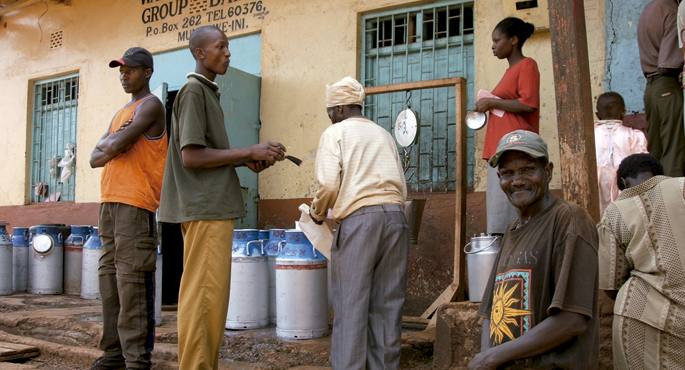
Milk in the hands of citizens, claims the October issue of Grain magazine. The Grain Partnership, which is self-evident, is “a small international organization that aims to support baserritars and social movements in the struggle to achieve food systems based on biodiversity and controlled in auzolan.” One of the founders of Grain is Biscayan Paul Nicholson, and another Basque, Aitor Urkiola, manages the association from Barcelona.
As Grain has titled Milk in the Hands of People, the journal Food Sovereignty, Biodiversity and Cultures has presented the topic with the title: The big theft of milk. How multinationals appropriate ‘popular milk’. In other words, there is a huge theft of milk in the world.
Popular milk? Here's why. All the basic food of the people was supplied by a chain that until recently functioned like the same: from farmers who have a few cows, to small collectors, they are transported to the cities and in the streets are distributed by many sellers, selling at home or in small shops. It is not a long time that in rich countries this network has been seen on fire.
But in the poor and developing South of the world, that informal chain still guarantees that milk comes home. In the north, the informal milk trade – excluded from the standard circuit – does not reach 10%, but in the south 80% gets milk. Here he is boiling the milk war.
Although many producers of homemade milk in the world do not know, there has been one of the great battles in Colombia. In Colombia there are 50,000 gardeners -dairy – daily dairy spreaders. They often drive on motorcycles from the two million barns that still survive in the country to the big marmites. 40 million litres or so. Raw milk, which each family will bring to a boil at home.
In 2006, however, the government of Álvaro Uribe banned the transport, sale and consumption of unpasteurized milk. The control of dairy products around the world has been put in place with the establishment of health standards, which in Euskal Herria have disappeared – not entirely – the dairy spreads. On the contrary, the standard generated in Colombia a greater indignation than expected in the country. The authorities had to postpone the decree and finally in 2010 decided on a new decree that would allow the sale of raw milk to the citizens of the United States.
Grain explains the advantages of non-centralized raw milk sales to poor people around the world. It makes available to anyone a staple food, at a very cheap price, and almost always of very good quality, because it has been produced in small stables, mostly grazing for cows. Millions of small farmers have livelihoods in it. But they meet gigantic corporations dominated by big investors.
Dogma of pasteurized milk
Today there are twenty major companies that control half of the world market for dairy products. They process a quarter of the whole milk deposited in the stables on the planet. Swiss Nestlé has proclaimed champion of the list, with 5% of the total market: in the year alone he earns 26 billion dollars in milk sales.
Behind Nestlé are two French corporations, Danone and Lactalis, who sell more than Nestlé between the two. The top 10 are completed by the Dutch FrieslandCampina, Fonterra de Nueva Zealand, Dean Foods, La Foods, Dairy Farmers of America and Kraft Foods, Danes Alra Foods and British Unilever.
As the wealth markets of the north are up to the necks of dairy, everyone is looking for new markets in the South, in America, Africa and Asia. On the one hand, the consumption of dairy products is expected to increase and, on the other, more and more people are buying in supermarkets.
They have captured the richest citizens from the streets who go to the super and hyperres by buying dairy companies that are already in place in those countries. Argentina, Brazil, Chile... in a few years they have managed to implement fashion. On the contrary, the complementary tactic is to stain the good name of raw milk so that small informal infants do not survive thanks to the market of poor customers.
It is a question of convincing the public that raw milk obtained immediately after milking is dangerous, without health guarantees. Thus it disappeared from the streets of Euskal Herria, except for the few baserritarras that are still bent each morning at the door with the old 4L. It is the campaign that is taking place in all cases, such as in Chile in Kenya or China.
In Kenya, fortunately, some university professors have opted for small unai, and their studies show that free milk has all the guarantees. In China, on the other hand, the opposite happened, but the world hasn't seen the whole movie.
In China in 2008 more than 300,000 children became sick with the added milk of melamine, and some of them even died. The Government sentenced two company leaders to death. But it has been concealed that almost half of the company that sold contaminated milk is owned by the multinational Fonterra and that the poison spreads beyond China. Melamine was found in Bangladesh under the well-known children's brand Nido, owned by Nestlé, and sold by the same company in Taiwan, Saudi Arabia and the United States. Safe milk?
Multinationals also want to centralise their purchases. It is too much to collect milk from a thousand small farms, better to concentrate production on the mega-cows. In the United States, between 1970 and 2006, milk husbandry fell by 88%, while Europe lost 70% between 1975 and 1995. On the contrary, the short-circuit dairy industry keeps jobs -- in the places it's given away.
There have also been other headaches with the Mega-Cows. As a cow makes as many manure as ten people, a farm with 2,000 heads generates as much waste as a city, in most cases enormously polluting, because they will not be properly managed.
The opening up of the multinationals with the intention of dealing with the small dairies of the South. And in Iparralde, increasingly leveraging short-circuit markets and raw milk. Raw milk again? In the United States, there's a war around that. Joint theme of the next Net Upcoming.
Takashi Yamano japoniarrak bere blogean dauka Kenyako esne kooperatiba txiki honen argazkia. Wakulima Group Dairy le-txeriaraino egunean 20.000 litro esne ekartzen dituzte inguruko laborari txikiek nork bere marmitetan, gero bertatik Nairobiko hainbat saltzailek banatu dezaten. Farmers Helping Farmers (Nekazariak elkarri laguntzen, ingelesez) erakundeak babesten du Wakulimaren jarduna, salmenta informalaren eta transnazionalek munduan ezarri dituzten estandarren arteko erdibidea egiten ahalegintzen diren kooperatibetako bat denak. Denek aurre egin beharko diete Nestlé erraldoiari eta honek Tetrapack konpainiarekin Afrika osoan antolatu duen estrategiari: esne gordinaren salmenta ahalik eta azkarren debekatu, bertako kooperatibak erosi, eta ondoren eremu hori erabili subentziotatik bizi diren Europa eta Amerikako granjetako esnea sartzeko.
Azken aldian, asteburuetan, Internet ez dabil ondo. Hasieran, zaila zen webguneei ezarritako blokeoen zergatia ulertzea; orain, badakigu Espainiako La Ligak agindu zituela, futbola modu ilegalean emititzea saihesteko. La Ligaren blokeoak euskal domeinuei eragiten dien... [+]
Bilbon eginiko aurkezpenean iragarri dute ekitaldia, euskarari "arnas berri bat emateko eta behar duen indarraldia gorpuzten hasteko" lehen urratsa izango dela nabarmenduta. Euskaltzale guztiei, baina, oro har, "justizia sozialean eta gizarte kohesioan aurre... [+]
Aljeriatik datoz Mohamed eta Said [izenak asmatuak dira], herri beretik. “Txiki-txikitatik ezagutzen dugu elkar, eskolatik”. Ibilbide ezberdinak egin arren, egun, elkarrekin bizi dira Donostian, kale egoeran. Manteoko etxoletan bizi ziren, joan den astean Poliziak... [+]
Olatz Salvador
Noiz: martxoaren 15ean.
Non: Deustuko jaietan.
------------------------------------------------
Martxoak beti du deustuarrontzat kolore berezia; urtero ospatzen ditugu jaiak, San Jose egunaren bueltan. Bi asteburu bete festa, eta urtetik urtera Deustuko... [+]
Euskal Herrian Euskarazek manifestazioa deitu du apirilaren 6rako, 11n EHEko bi kide epaituko dituztelako. Hiriburuetatik autobusak antolatzen ari dira. Bi helburu bete nahi dituzte, batetik, epaituak izango diren bi kideei babesa erakustea, eta bestetik, euskararentzat justizia... [+]
Pazienteek Donostiara joan behar dute arreta jasotzeko. Osasun Bidasoa plataforma herritarrak salatu du itxierak “are gehiago hondatuko” duela eskualdeko osasun publikoa.
EH Bilduk galdera sorta bat erregistratu zuen Eusko Legebiltzarrean Donostiako Metroaren igarobideko lanen gainkostua argitzeko. Informazio hori atzo jakinarazi zuen Susana Garcia Chueca Mugikortasun sailburu sozialistak.
Kirola eta oroimena uztartuko dituzte, bigarrenez, mendi-martxa baten bitartez. Ez da lehiakorra izanen, helburua beste bat delako. La Fuga izeneko mendi martxak 1938ko sarraskia gogorarazi nahi du. Ezkabako gotorlekuan hasi eta Urepelen amaituko da. Maiatzaren 17an eginen dute.
Martxoaren 19an amaitu zen proiektua aurkezteko epea, baina Errioxako PSOEk adierazi du Forestalia enpresak "interesa baztertu" duela. Enpresak bi parke eoliko eraiki nahi zituen Aragoiko lurretan, baina oraindik ez ditu lortu baimenak eta hori dute egitasmoa... [+]
Seaska Sarean inklusio egoeran dauden 165 ikasleei laguntza bermatzeko hasi dute kanpaina, antolaketa propioa eratuta. Frantziako Hezkuntza Ministerioaren jarrera salatu dute kanpaina aurkezteko prentsaurrekoan, behar bereziak dituzten haurren inklusiorako baliabide... [+]
Muga-zergak apirilaren 2tik aurrera ezarriko dira eta altzairuari eta aluminioari ezarritakoei batuko zaizkie. "Gurekin negozioa egiten duten eta gure aberastasuna eskuratzen duten herrialdeei ezarriko dizkiegu", AEBetako presidenteak adierazi duenez.
%90eko jarraipen "ia erabatekoa" izan du grebak, sindikatuen arabera. Gasteizko parkeak, lorategiak eta eraztun berdea mantentzen dituzte Enviser azpikontratako 90 langileek.









